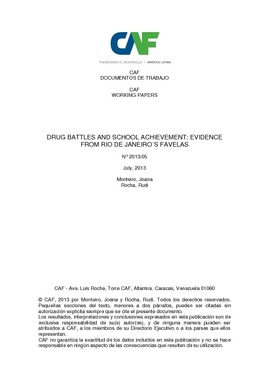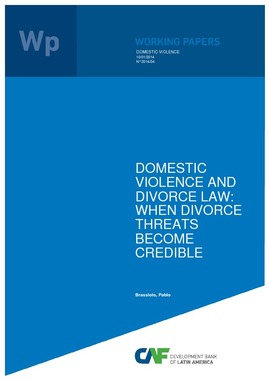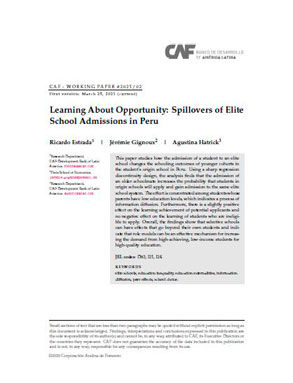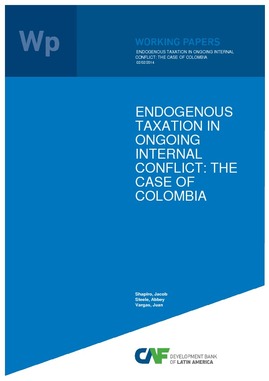Drug battles and school achievement: evidence from Rio de Janeiro's favelas
Resumo
This paper examines the effects of armed conflicts between drug gangs in Rio de Janeiro's favelas on student achievement. To identify the causal effect of violence on education, we explore variation in violence that occurs across time and space when gangs battle over territories. The evidence indicates that these battles are triggered by factors often exogenous to local socioeconomic conditions, such as the imprisonment or release of a gang leader, betrayals and revenge. Within-school estimates indicate that students from schools exposed to violence score less in math exams. The effect of violence increases with conflict intensity, duration, and proximity to exam dates; and decreases with the distance between the school and the conflict location. There is no evidence that the effect of violence persists for more than one year. Finally, we find that school supply is an important mechanism driving the achievement results; armed conflicts are significantly associated with higher teacher absenteeism, principal turnover, and temporary school closings.
Assunto
País / Región
Data
2013Cite esta publicação
Item que pertence à coleção
Autor
Monteiro, JoanaRocha, Rudi
Items Relacionados
Domestic Violence and Divorce Law: When Divorce Threats Become Credible
This paper investigates whether lowering the cost of divorce can reduce domestic violence. The cost of divorce influences the bargaining position of ...
Learning About Opportunity: Spillovers of Elite School Admissions in Peru
This paper studies how the admission of a student to an elite school changes the schooling outcomes of younger cohorts in the student’s origin school ...
Endogenous Taxation in Ongoing Internal Conflict: The Case of Colombia
Recent empirical evidence at the cross-country and subnational levels suggests that internal conflicts harm state capacity and tax performance. On the ...






